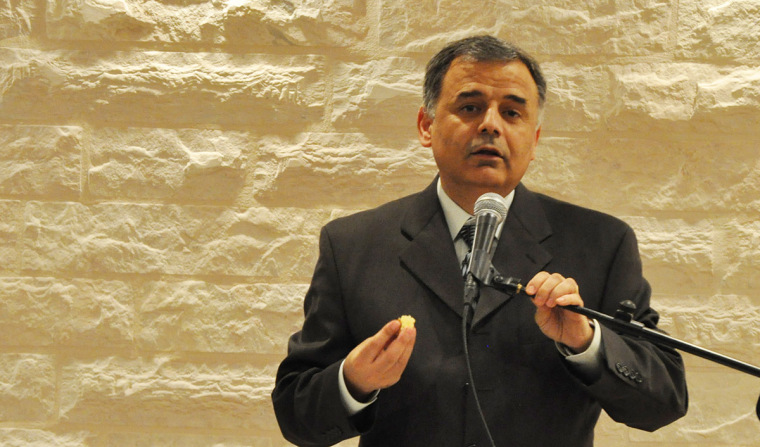Evangelical scholar says no need for Muslims to become 'Christians'

ZARQA, Jordan (Christian Examiner) -- Nabeeh Abbassi has a unique perspective of Middle Eastern culture and believes a better understanding of the differences between easterners and westerners could help Christians in their approach to evangelism.
"The distinction between East and West is that religion is not a part of your life -- it defines who you are," Abbassi said.
As a youngster, the evangelical scholar and minister remembers marching to school in the military camp at Zarqa, Jordan, where his father was stationed. His was one of three Christian houses in a section where 30 Muslim homes were also set aside as housing for soldiers and their families.
Like communities throughout the Middle East -- there were Christians and there were Muslims. And each had their own religious faith they were born into.
Unlike in the United State where religion is "just a part" of who you are, in the Middle East "the Arab culture does not differentiate -- if you are a Christian or a Muslim, that's who you are," Abbassi told Christian Examiner.
Abbassi, the former president of the Jordan Baptist Convention, is a graduate of Dallas Theological Seminary and in the United States for a year-long sabbatical. He was the provost and a professor at Jordan Evangelical Theological Seminary in Amman.
After Abbassi's father retired and the family moved back to their home in Husn, he said he realized even though he was born into a Christian home, he was not a believer.

"I always had a desire to have peace with God, but I found out early in life that religion did not provide that for me. I knew Islam and I knew Catholicism," Abbassi said. "I always had a fear of death, but I had no meaning of life beyond death -- and I thought life was boring."
All of that changed when Abbassi said a young classmate shared about God's love.
"I realized even though I was born in a 'Christian' home, I wasn't a Christian," Abbassi said. "I realized everything had changed when I invited Christ in. I was forgiven if I died tonight. The whole thing had changed and there was joy for me."
The Bible study he and other teens began in his home turned into Husn Baptist Church and is still there meeting now in a permanent building.
Noting the church in its earliest form received opposition from more traditional churches who "were afraid we were a cult," Abbassi said as time passed the others realized "we were good people and loved God and the community."
"And that's the story of other evangelical churches in Jordan," Abbassi said.
In a place where Christians and Muslims increasingly have faced hardships due to radical Islamists who are bent on the eradication of Christians, Abbassi said it is especially important to remember the way families are identified -- and the culture -- when reaching out with the Gospel message.
"I don't think we are commanded to change people to become Christians," Abbassi explained. "I think we are commanded to reconcile people to God through Jesus Christ -- and that happens in their heart -- this is the work of the Holy Spirit."
Abbassi, who is also founder of Arab Center for Training and Consulting Services (ACCTS), an official NGO serving refugees in the Middle East, said a careful presentation is important for Easterners who are a "tribal and social" people, lest problems lead to violence.
"We don't want to bring calamity and war. We want people to reconcile to God without rioting," Abbassi said. "We know this is not easy and there is a price for people following Him.
"What I am trying to say is that we are not to encourage people to become 'Christians,'" Abbassi said, with the understanding that "as Arabs, this means you were born in a Christian home and part of that family or that clan."
People "don't have to call themselves Christians" to change the culture, Abbassi said. "They need to have hope, joy and peace with God through Jesus Christ to be able to impact their society."
It's a spiritual work, not an "identity change on paper," he said. "We want to see people improve their love with God through Jesus Christ and that's the Good News."
RELATED STORIES:
Jordanian Christian: No problems until radical Islamists 'brainwashed young'
Jordanian Baptist says his king has military prowess to eliminate ISIS